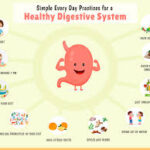Gestation and lactation are two things of parenting that are unique to women. Let’s break them down.
Gestation (Pregnancy):
Gestation is the incredible process of carrying and nurturing a baby inside the womb. It’s exclusive to women because they have a uterus and the ability to conceive. During gestation:
- Conception: It starts when a sperm cell from a man fertilizes an egg from a woman. This tiny cell then grows into a baby.
- Prenatal Care: Moms-to-be need extra care, like regular check-ups, a balanced diet, and avoiding harmful substances to ensure the baby’s health.
- Development: The fetus develops from a tiny collection of cells into a full-term baby over about nine months.
Lactation (Breastfeeding):
Lactation is the process by which a mother produces milk to feed her baby. It’s an amazing way to provide essential nutrients and antibodies. Some key points about lactation:
- Colostrum: This is the first milk produced after birth, filled with vital nutrients and antibodies for the baby’s immune system.
- Benefits: Breast milk provides the ideal mix of nutrients, boosts the baby’s immune system, and helps in bonding between mom and baby.
- Challenges: While it’s natural, feeding the baby might be challenging for some moms due to various reasons. Support and guidance can help overcome these challenges.
What Dads Can Do?
While two things men can’t experience gestation or lactation, they play an equally crucial role to the parents:
- Support: Dads can offer emotional support during pregnancy, attending appointments, and being involved in the birth process.
- Parenting Partner: They can bond with their baby through feeding (using pumped breast milk or formula), changing diapers, and spending quality time.
- Household Help: Assisting with chores and taking care of the household eases the load on the new mom, allowing her to focus on the baby.
Role of Men in Parenting
Daddy plays a significant role in parenthood, and their impact goes beyond just biological aspects. Here’s how:
1. Emotional Support:
- Encouragement: Providing emotional support to their partner during pregnancy and childbirth.
- Being Present: Being there for their children emotionally, offering guidance, and being a pillar of support.
2. Active Participation:
- Bonding: Building strong bonds with their children through quality time spent together.
- Involvement: Engaging actively in their children’s lives, from playing games to helping with homework.
3. Teaching and Learning:
- Life Lessons: Sharing valuable life lessons, teaching skills, and instilling values.
- Learning Together: Embracing the learning curve of parenting, growing alongside their children.
4. Shared Responsibilities:
- Household Chores: Sharing household chores, including cooking, cleaning, and childcare duties.
- Financial Support: Providing for the family and sharing financial responsibilities.
5. Role Modeling:
- Behavioral Examples: Being a positive role model by exhibiting kindness, respect, and responsibility.
- Equality: Demonstrating equality in relationships, showcasing mutual respect between partners.
6. Communication and Understanding:
- Open Dialogue: Encouraging open communication within the family, fostering trust and understanding.
- Empathy: Teaching empathy and understanding towards others’ feelings and perspectives.
7. Nurturing Relationships:
- Spousal Relationship: Nurturing a healthy relationship with their partner, showcasing love and respect.
- Sibling Relationships: Fostering positive relationships among siblings, encouraging cooperation and harmony.
Benefits of Dad Blog UK
Dad Blog UK offers numerous benefits:
- Supportive Community: It creates a platform where dads can connect, share experiences, and seek advice. This sense of community helps dads feel supported in their parenting journey.
- Varied Perspectives: It showcases diverse perspectives on fatherhood, allowing readers to understand the multifaceted nature of parents from different angles.
- Practical Advice: It provides practical tips and guidance on various parenting challenges, offering real-life solutions that dads can implement in their everyday lives.
- Emotional Support: Through personal stories and shared experiences, the blog helps dads navigate the emotional aspects of fatherhood, fostering a sense of solidarity.
- Resource Hub: This blog serves as a valuable resource hub, offering information on child development, health, education, and family dynamics, aiding dads in making informed decisions.
- Celebrating Fatherhood: It celebrates the joys and triumphs of fatherhood, highlighting the importance of paternal involvement and the positive impact dads have on their children’s lives.
- Breaking Stereotypes: The blog challenges traditional stereotypes of fatherhood, encouraging a more inclusive and modern approach to parenting, thus promoting equality.
- Inspiration and Motivation: Through inspirational stories and motivational content, Dad Blog UK inspires dads to be actively engaged in their children’s lives and to strive for personal growth.
Supporting the Breastfeeding Partner
Supporting the partner is crucial for a healthy and positive experience. Here’s how partners can offer support:
- Encouragement: Expressing encouragement and appreciation for the baby feeding efforts. Positive words and gestures can boost confidence.
- Emotional Support: Providing emotional reassurance and being understanding during the ups and downs of baby feeding. Listening and offering comfort go a long way.
- Help with Household Tasks: Assisting with household chores, such as cooking, cleaning, and laundry, to ease the feed-the-baby process of the partner’s workload.
- Creating a Comfortable Environment: Ensuring a comfortable and supportive environment. This includes providing a quiet space, adjusting pillows for comfort, and offering water or snacks.
- Learning About Breastfeeding: Educating oneself about the benefits and challenges of baby feeding. Understanding the process helps partners offer informed support.
- Taking Care of Other Responsibilities: Handling other caregiving tasks, such as changing diapers, soothing the baby, putting the baby to sleep, and allowing the partner to rest.
- Encouraging Rest and Self-Care: Encouraging your partner to rest, offering opportunities for self-care, and ensuring they have time for relaxation.
- Advocacy: Being an advocate for feeding the baby in public or social settings, offering understanding and support in case of any criticism or discomfort.
- Expressing Gratitude: Showing appreciation for your partner’s dedication and effort in nourishing the baby.
Benefits of Involved Fatherhood
Involved fatherhood offers numerous benefits for both children and families:
- Child Development: Active father involvement contributes to children’s cognitive development, social skills, and emotional well-being. It fosters better academic performance and problem-solving abilities.
- Emotional Bonding: Engaging fathers build strong emotional connections with their children, promoting secure attachment and healthy relationships. This bond positively impacts children’s self-esteem and resilience.
- Behavioral Development: Involved fathers often contribute to better behavioral outcomes in children, including lower risk of behavioral problems and delinquency.
- Gender Role Modeling: Fathers who are actively involved in caregiving challenge traditional gender roles, providing positive examples of equality and shared responsibilities.
- Supportive Environment: Children with involved fathers tend to feel more supported and confident, creating a nurturing and supportive family environment.
- Enhanced Communication: Involved fathers encourage open communication within the family, leading to better problem-solving skills and healthier relationships.
- Improved Mental Health: Children with engaged fathers are less likely to experience mental health issues and have better coping mechanisms in stressful situations.
- Positive Impact on Mothers: Involved fathers alleviate the parenting burden on mothers, allowing for better maternal well-being and reduced stress.
- Educational Support: Fathers’ involvement in their children’s education leads to higher educational attainment and greater academic success.
- Long-Term Benefits: Children with involved fathers tend to have better social skills and higher self-confidence, and are more likely to form stable relationships in adulthood.




















